
Matt Goldberg
@mattgoldberg100.bsky.social
Research Scientist and Director of Experimental Research at the Yale Program on Climate Change Communication | XandY co-founder
Pinned

Do persuasive messages convince more people, or do they convince people to a larger degree?
In our new working paper, we examine this question with 14 experiments, 94 messages tested, and 41,265 participants.
Paper: osf.io/preprints/os...
1/x
In our new working paper, we examine this question with 14 experiments, 94 messages tested, and 41,265 participants.
Paper: osf.io/preprints/os...
1/x
🚨 New paper now out in Nature Climate Change! 🎉 Climate change belief systems across 110 countries and territories.
Climate change beliefs don’t stand in isolation, they’re connected to one another in a belief system.
1/x
Climate change beliefs don’t stand in isolation, they’re connected to one another in a belief system.
1/x

September 4, 2025 at 2:08 PM
🚨 New paper now out in Nature Climate Change! 🎉 Climate change belief systems across 110 countries and territories.
Climate change beliefs don’t stand in isolation, they’re connected to one another in a belief system.
1/x
Climate change beliefs don’t stand in isolation, they’re connected to one another in a belief system.
1/x
Reposted by Matt Goldberg
Nuclear NIMBYs: Our new national poll finds that Americans' support for building new nuclear power outnumbers opposition IF it is built in a state where they do not live, BUT the pattern is reversed if it would be located within 50 miles of their home.
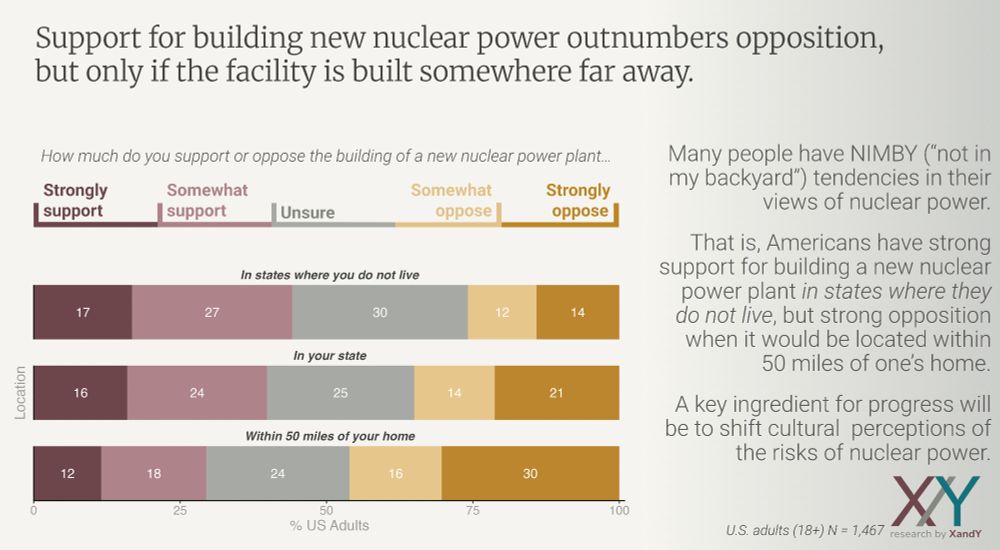
August 28, 2025 at 3:17 PM
Nuclear NIMBYs: Our new national poll finds that Americans' support for building new nuclear power outnumbers opposition IF it is built in a state where they do not live, BUT the pattern is reversed if it would be located within 50 miles of their home.
Reposted by Matt Goldberg
🚨BREAKING: Apparently, we've written a paper about how dog ownership causes extreme weather 🐶🌪️ 😂
Or at least that’s what some 'news' headlines are suggesting in the US...
While I appreciate the media's interest in our recent study in PNAS Nexus, in reality, we found something very different...
Or at least that’s what some 'news' headlines are suggesting in the US...
While I appreciate the media's interest in our recent study in PNAS Nexus, in reality, we found something very different...

August 28, 2025 at 12:41 PM
🚨BREAKING: Apparently, we've written a paper about how dog ownership causes extreme weather 🐶🌪️ 😂
Or at least that’s what some 'news' headlines are suggesting in the US...
While I appreciate the media's interest in our recent study in PNAS Nexus, in reality, we found something very different...
Or at least that’s what some 'news' headlines are suggesting in the US...
While I appreciate the media's interest in our recent study in PNAS Nexus, in reality, we found something very different...
Reposted by Matt Goldberg
Are #AutonomousVehicles safer than human drivers? While the actual safety metrics matter a lot, another important determinant of diffusion and adoption is public perception of which one is safer. Our recent national study found that Americans are still about equally split on this.
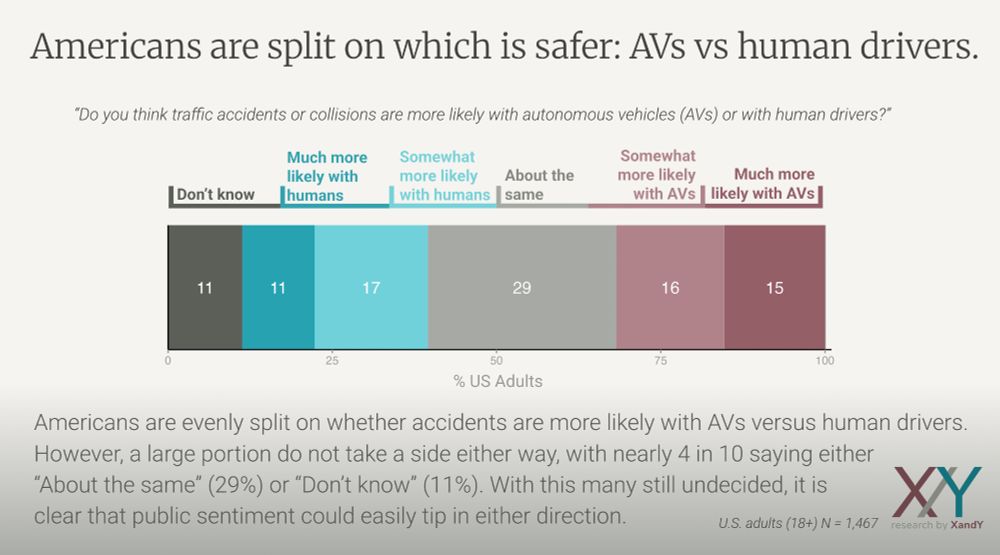
August 21, 2025 at 1:47 PM
Are #AutonomousVehicles safer than human drivers? While the actual safety metrics matter a lot, another important determinant of diffusion and adoption is public perception of which one is safer. Our recent national study found that Americans are still about equally split on this.
Reposted by Matt Goldberg
It's going to be an uphill climb for autonomous vehicles.
In AAA's survey, only only 13% of U.S. drivers say a fully self-driving vehicle is important to them, where as 64% of want automatic emergency braking, and 59% want lane-keeping assistance.
newsroom.aaa.com/2025/02/aaa-...
In AAA's survey, only only 13% of U.S. drivers say a fully self-driving vehicle is important to them, where as 64% of want automatic emergency braking, and 59% want lane-keeping assistance.
newsroom.aaa.com/2025/02/aaa-...

AAA: Fear in Self-Driving Vehicles Persists
ORLANDO, FL (Feb. 25, 2025) – According to AAA’s latest survey on autonomous vehicles, 13% of U.S. drivers would trust riding in self-driving vehicles –
newsroom.aaa.com
July 24, 2025 at 3:44 PM
It's going to be an uphill climb for autonomous vehicles.
In AAA's survey, only only 13% of U.S. drivers say a fully self-driving vehicle is important to them, where as 64% of want automatic emergency braking, and 59% want lane-keeping assistance.
newsroom.aaa.com/2025/02/aaa-...
In AAA's survey, only only 13% of U.S. drivers say a fully self-driving vehicle is important to them, where as 64% of want automatic emergency braking, and 59% want lane-keeping assistance.
newsroom.aaa.com/2025/02/aaa-...
Reposted by Matt Goldberg
Q: When is a large number of people feeling merely "Neutral" actually a positive signal?
A: When this means there's very little opposition!
In our national poll, we found that 51% of Americans who have *never* owned crypto said they feel neither positive nor negative sentiment... just neutral.
A: When this means there's very little opposition!
In our national poll, we found that 51% of Americans who have *never* owned crypto said they feel neither positive nor negative sentiment... just neutral.
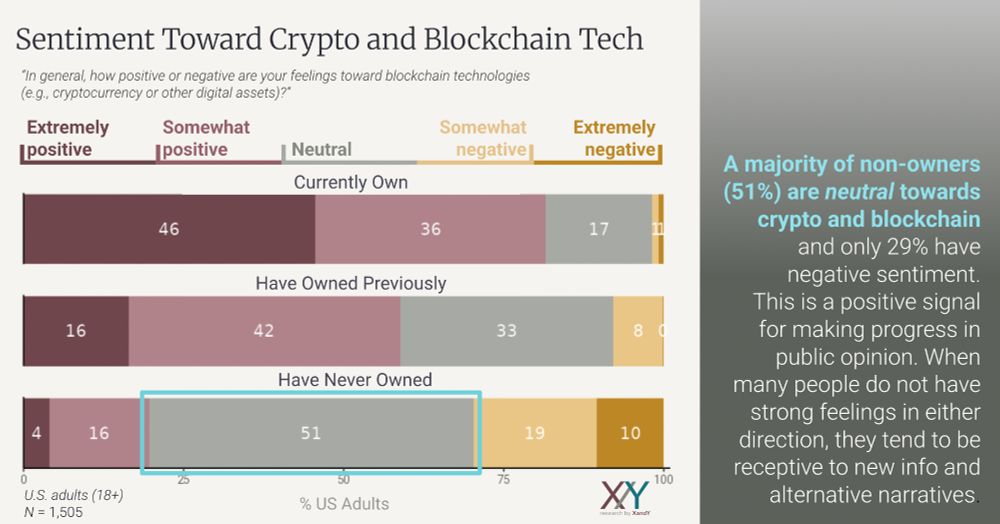
July 16, 2025 at 3:07 PM
Q: When is a large number of people feeling merely "Neutral" actually a positive signal?
A: When this means there's very little opposition!
In our national poll, we found that 51% of Americans who have *never* owned crypto said they feel neither positive nor negative sentiment... just neutral.
A: When this means there's very little opposition!
In our national poll, we found that 51% of Americans who have *never* owned crypto said they feel neither positive nor negative sentiment... just neutral.
Reposted by Matt Goldberg
Are younger Americans more likely to own crypto? The data says YES... but with an asterisk.
Typically with new tech, you'd expect younger people are more likely to participate. But in our national study, we see that ownership drops dramatically among adults under 25, despite peaking in ages 25-34.
Typically with new tech, you'd expect younger people are more likely to participate. But in our national study, we see that ownership drops dramatically among adults under 25, despite peaking in ages 25-34.

July 10, 2025 at 6:56 PM
Are younger Americans more likely to own crypto? The data says YES... but with an asterisk.
Typically with new tech, you'd expect younger people are more likely to participate. But in our national study, we see that ownership drops dramatically among adults under 25, despite peaking in ages 25-34.
Typically with new tech, you'd expect younger people are more likely to participate. But in our national study, we see that ownership drops dramatically among adults under 25, despite peaking in ages 25-34.
Reposted by Matt Goldberg
🧠🌍 Can you correct misperceptions of the impact of different climate actions?
In a new @pnasnexus.org paper, we tested whether climate action literacy interventions can shift behavioral commitments toward more effective climate actions. Check out our neat results 🙂
academic.oup.com/pnasnexus/ad...
In a new @pnasnexus.org paper, we tested whether climate action literacy interventions can shift behavioral commitments toward more effective climate actions. Check out our neat results 🙂
academic.oup.com/pnasnexus/ad...

Climate action literacy interventions increase commitments to more effective mitigation behaviors
Abstract. Reducing lifestyle carbon emissions is a critical component of decarbonizing society. However, people hold substantial misperceptions about the r
academic.oup.com
June 11, 2025 at 5:12 PM
🧠🌍 Can you correct misperceptions of the impact of different climate actions?
In a new @pnasnexus.org paper, we tested whether climate action literacy interventions can shift behavioral commitments toward more effective climate actions. Check out our neat results 🙂
academic.oup.com/pnasnexus/ad...
In a new @pnasnexus.org paper, we tested whether climate action literacy interventions can shift behavioral commitments toward more effective climate actions. Check out our neat results 🙂
academic.oup.com/pnasnexus/ad...
Reposted by Matt Goldberg
I agree so strongly with this!! I have had the good fortune to have several brilliant non-tenure track scientists in my research group, and have massively benefited as a result. This should be the norm!
“We need to create real pathways to permanence, recognising mid-career scientists not as anomalies or exceptions, but as essential”.
Having left academia mid-career to move into the private sector, I have strong feels about this article…
#AcademicSky
www.timeshighereducation.com/depth/im-tir...
Having left academia mid-career to move into the private sector, I have strong feels about this article…
#AcademicSky
www.timeshighereducation.com/depth/im-tir...

I’m tired of the academic road to nowhere – but it’s too late to exit
For one mid-career academic scientist, precarity is becoming unbearable. But they are too experienced for entry-level industry jobs and not experienced enough for senior ones. They’ve stayed too long,...
www.timeshighereducation.com
May 22, 2025 at 3:14 PM
I agree so strongly with this!! I have had the good fortune to have several brilliant non-tenure track scientists in my research group, and have massively benefited as a result. This should be the norm!
💡 Interesting new paper uses semantic similarity to examine the "echo" of strategic comms by environmental orgs. Key findings:
▪️ More than 50% of comms had no "echo" at all
▪️ Online discourse showing strong similarity to the original comms is represented by a very small % of the total
▪️ More than 50% of comms had no "echo" at all
▪️ Online discourse showing strong similarity to the original comms is represented by a very small % of the total

Using semantic similarity to measure the echo of strategic communications - EPJ Data Science
Many actors use strategic communications to impact media debates through targeted messages and campaigns, but the scale and diversity of online media content make it difficult to evaluate the impact of a particular message or campaign. In this paper, we present a new technique that leverages semantic similarity of actor messages and media content to quantify the change in media discourse after a particular message has been published. We demonstrate our approach by measuring the impact of press releases from environmentally-active organisations on social media discussions about climate change. Our results show a heavy-tailed distribution of responses to these strategic communications, suggesting that relatively few messages have a substantive impact on online discourse.
epjdatascience.springeropen.com
May 15, 2025 at 2:18 PM
💡 Interesting new paper uses semantic similarity to examine the "echo" of strategic comms by environmental orgs. Key findings:
▪️ More than 50% of comms had no "echo" at all
▪️ Online discourse showing strong similarity to the original comms is represented by a very small % of the total
▪️ More than 50% of comms had no "echo" at all
▪️ Online discourse showing strong similarity to the original comms is represented by a very small % of the total
A common challenge in communicating about climate data is that differences can seem small or noisy on the graph but are actually hugely consequential. An interesting new paper shows that making it binary (e.g., lake froze vs. did not freeze) can increase the perceived climate impacts.


May 14, 2025 at 1:15 PM
A common challenge in communicating about climate data is that differences can seem small or noisy on the graph but are actually hugely consequential. An interesting new paper shows that making it binary (e.g., lake froze vs. did not freeze) can increase the perceived climate impacts.
✍ New working paper! How does message repetition and timing affect the durability of climate message effects? To examine this Q, we conducted a five-wave panel study, tracking people's beliefs over the course of 10 weeks in response to listening to @climateconnections.bsky.social radio stories.
1/x
1/x

May 13, 2025 at 6:11 PM
✍ New working paper! How does message repetition and timing affect the durability of climate message effects? To examine this Q, we conducted a five-wave panel study, tracking people's beliefs over the course of 10 weeks in response to listening to @climateconnections.bsky.social radio stories.
1/x
1/x
🔎 Want to explore 16-years worth of data on climate change public opinion? The latest update to the Climate Change in the American Mind interactive data explorer was released today.
Check it out! 👇
Check it out! 👇
NEW TOOL: Announcing a new version of the Climate Change in the American Mind (CCAM) interactive dashboard – the CCAM Explorer. This tool allows you to explore how Americans’ climate opinions have evolved over time, by demographics, politics, and more.
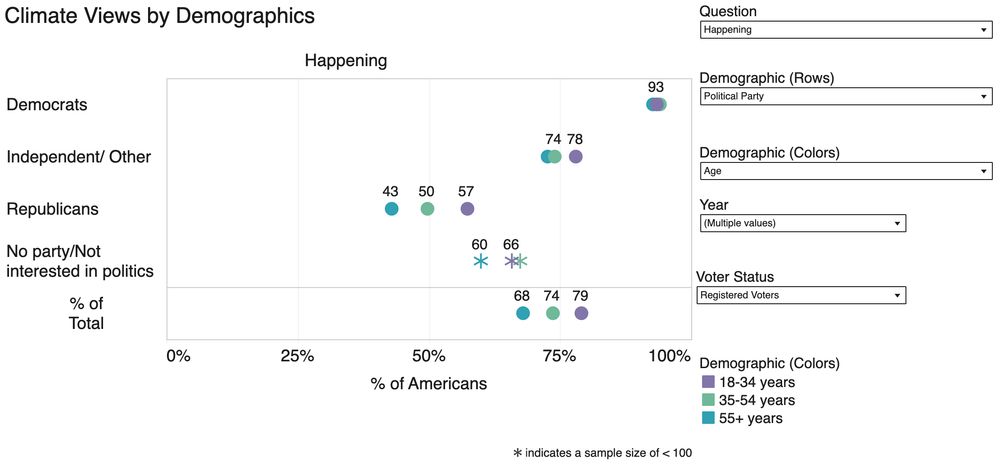
Explore Climate Change in the American Mind - Yale Program on Climate Change Communication
Explore Americans’ climate change beliefs, risk perceptions, policy preferences, and behavior.
climatecommunication.yale.edu
May 6, 2025 at 4:36 PM
🔎 Want to explore 16-years worth of data on climate change public opinion? The latest update to the Climate Change in the American Mind interactive data explorer was released today.
Check it out! 👇
Check it out! 👇
🧠 The term "psychedelics" can evoke strong mental models—both positive and negative—that shape public opinion and support for policy. As we continue efforts to decriminalize and secure therapeutic access, it's 🔑 that we understand these underlying perceptions.
1/x
1/x

May 1, 2025 at 10:06 PM
🧠 The term "psychedelics" can evoke strong mental models—both positive and negative—that shape public opinion and support for policy. As we continue efforts to decriminalize and secure therapeutic access, it's 🔑 that we understand these underlying perceptions.
1/x
1/x
🌎 Want to explore climate change public opinion in any of 187 countries and territories worldwide? New tool released today 👇
NEW: Our new global factsheets tool provides 8 key measures of climate attitudes, behaviors, and policy support and climate change audience segmentation for many countries across the world.
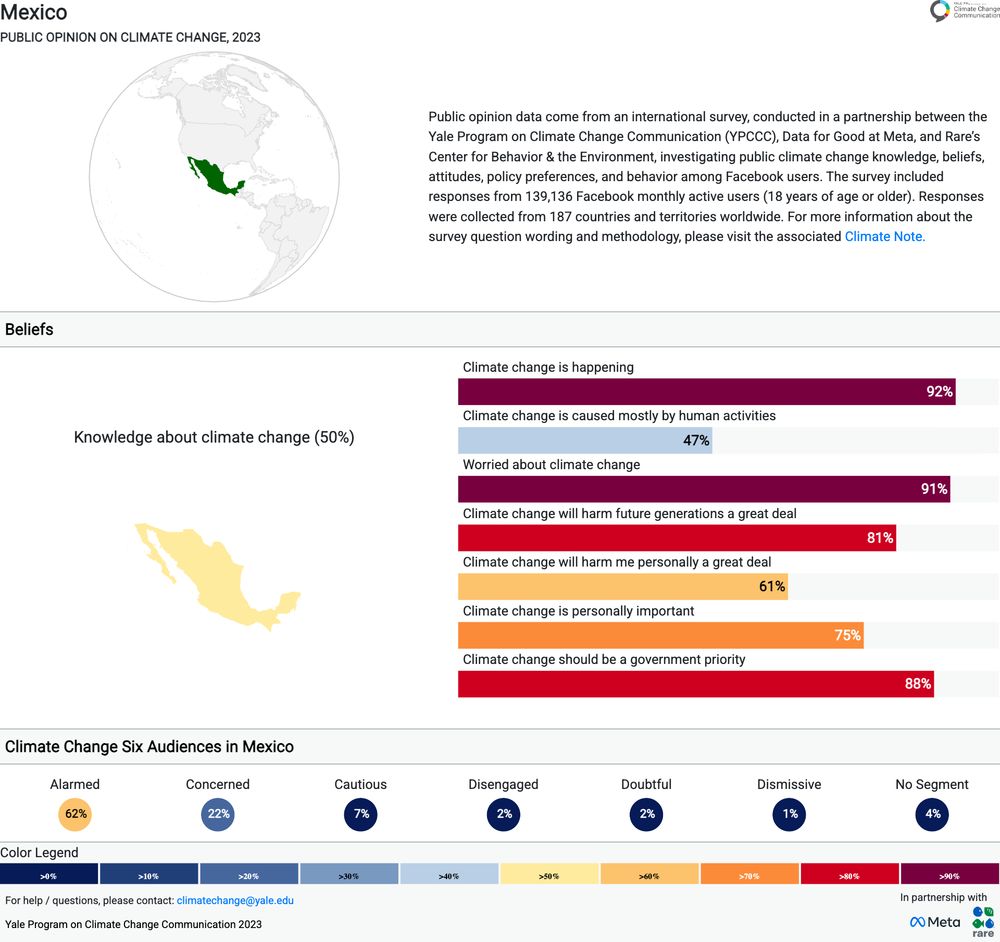
Global Climate Opinion Factsheets - Yale Program on Climate Change Communication
Factsheets on climate opinions, risk perceptions, and policy for 110 countries, territories, and geographic groups around the world.
climatecommunication.yale.edu
April 8, 2025 at 6:19 PM
🌎 Want to explore climate change public opinion in any of 187 countries and territories worldwide? New tool released today 👇
🤔 When thinking about strategy, one of the most common points of confusion is the difference between a strategy and a plan.
A plan has a clear path: Do X, then Y, then Z.
Strategy usually contains a *hypothesis about how the world works.* It’s a bet that accepts the possibility of being wrong.
A plan has a clear path: Do X, then Y, then Z.
Strategy usually contains a *hypothesis about how the world works.* It’s a bet that accepts the possibility of being wrong.

April 8, 2025 at 1:21 PM
🤔 When thinking about strategy, one of the most common points of confusion is the difference between a strategy and a plan.
A plan has a clear path: Do X, then Y, then Z.
Strategy usually contains a *hypothesis about how the world works.* It’s a bet that accepts the possibility of being wrong.
A plan has a clear path: Do X, then Y, then Z.
Strategy usually contains a *hypothesis about how the world works.* It’s a bet that accepts the possibility of being wrong.
New report from Pew Research Center: How the U.S. Public and AI Experts View Artificial Intelligence
Some highlights that stood out to me:
🟣US adults and AI experts are similarly worried gov’t regulation won’t go far enough (rather than going too far)
1/x
Some highlights that stood out to me:
🟣US adults and AI experts are similarly worried gov’t regulation won’t go far enough (rather than going too far)
1/x

April 7, 2025 at 6:32 PM
New report from Pew Research Center: How the U.S. Public and AI Experts View Artificial Intelligence
Some highlights that stood out to me:
🟣US adults and AI experts are similarly worried gov’t regulation won’t go far enough (rather than going too far)
1/x
Some highlights that stood out to me:
🟣US adults and AI experts are similarly worried gov’t regulation won’t go far enough (rather than going too far)
1/x
What’s the ROI of message testing? When I think about this question, I keep coming back to this super important paper and its findings:
💡The more variable message effects are, the more valuable it is to test your messages in a research setting before deployment.
🧵 1/x
💡The more variable message effects are, the more valuable it is to test your messages in a research setting before deployment.
🧵 1/x

April 7, 2025 at 12:30 PM
What’s the ROI of message testing? When I think about this question, I keep coming back to this super important paper and its findings:
💡The more variable message effects are, the more valuable it is to test your messages in a research setting before deployment.
🧵 1/x
💡The more variable message effects are, the more valuable it is to test your messages in a research setting before deployment.
🧵 1/x
Reposted by Matt Goldberg
📝 What affects the durability of persuasion? In our new working paper, through a five wave panel study over ten weeks, we evaluate the impact of two factors: how many times individuals are treated (dosage) and the interval between treatments (timing).
1/x
1/x

April 1, 2025 at 2:56 PM
📝 What affects the durability of persuasion? In our new working paper, through a five wave panel study over ten weeks, we evaluate the impact of two factors: how many times individuals are treated (dosage) and the interval between treatments (timing).
1/x
1/x
💡 It’s amazing how broadly we can apply our understanding of diffusion-of-innovations. Even *the internet* took decades to become mainstream. A lot of the working components were starting to come together in the late 1960s and through the 1970s. But lots of people didn’t easily see the value. 🧵 1/x

March 28, 2025 at 2:45 PM
💡 It’s amazing how broadly we can apply our understanding of diffusion-of-innovations. Even *the internet* took decades to become mainstream. A lot of the working components were starting to come together in the late 1960s and through the 1970s. But lots of people didn’t easily see the value. 🧵 1/x
Reposted by Matt Goldberg
A really cool new study on the impact of climate activism has just dropped! Some highlights:
1) "There is strong evidence that climate activism shifts public opinion and media coverage in a pro-climate direction, but this varies by context and the tactics employed."
1) "There is strong evidence that climate activism shifts public opinion and media coverage in a pro-climate direction, but this varies by context and the tactics employed."
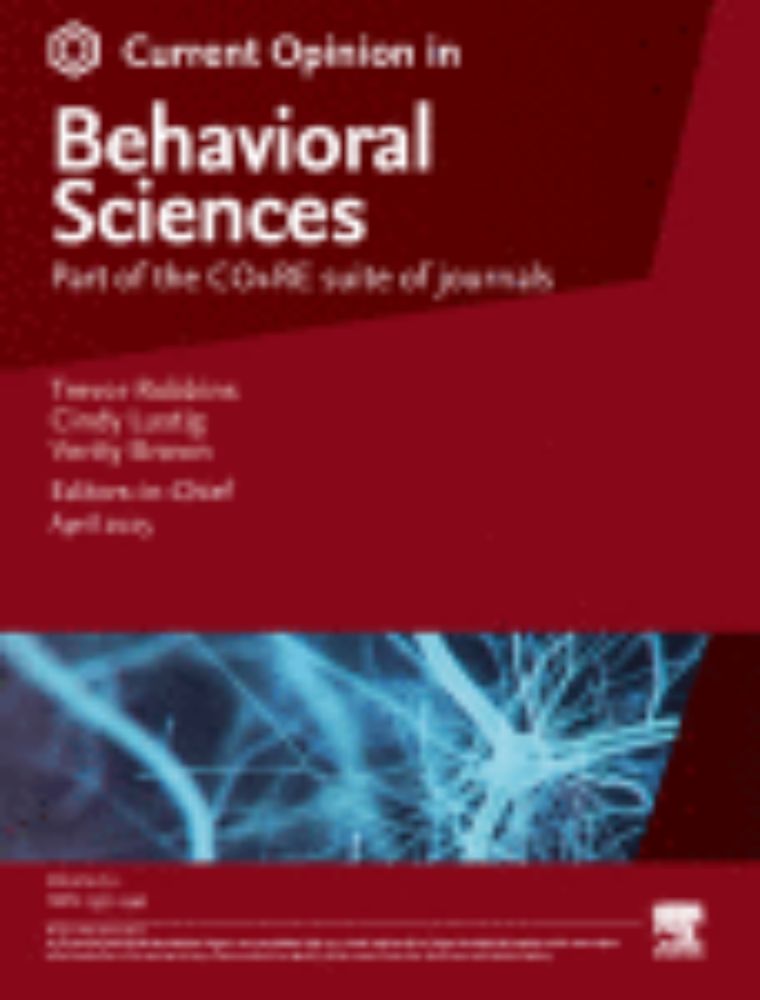
The impacts of climate activism
We review 50 studies on the impacts of climate activism. We present the existing evidence in a map of what we know about climate activism and its impa…
www.sciencedirect.com
March 27, 2025 at 7:15 PM
A really cool new study on the impact of climate activism has just dropped! Some highlights:
1) "There is strong evidence that climate activism shifts public opinion and media coverage in a pro-climate direction, but this varies by context and the tactics employed."
1) "There is strong evidence that climate activism shifts public opinion and media coverage in a pro-climate direction, but this varies by context and the tactics employed."
🤖 A recent nationally representative survey by Gallup shows clearly that: 99% of respondents reported using products that include an AI component (e.g., virtual assistant, streaming services, etc.) but most people don't consider this to *be* AI.
1/2
1/2
March 27, 2025 at 6:45 PM
🤖 A recent nationally representative survey by Gallup shows clearly that: 99% of respondents reported using products that include an AI component (e.g., virtual assistant, streaming services, etc.) but most people don't consider this to *be* AI.
1/2
1/2
🪧 What are the impacts of climate activism? We reviewed 50 studies from the past few years on this exact question, and here's what we found:
1/x
1/x

March 27, 2025 at 2:15 PM
🪧 What are the impacts of climate activism? We reviewed 50 studies from the past few years on this exact question, and here's what we found:
1/x
1/x
Reposted by Matt Goldberg
NEW ARTICLE: “Understanding the policy features that affect Indians' support for India's 2070 net-zero goal” in the journal Climatic Change. Find it here:

Understanding the policy features that affect Indians' support for India's 2070 net-zero goal - Yale Program on Climate Change Communication
We are pleased to announce the publication of a new article, “Understanding the policy features that affect Indians’ support for India’s 2070 net-zero goal” in the journal Climatic Change. In 2021, the Indian government announced the goal of net-zero carbon […]
climatecommunication.yale.edu
March 18, 2025 at 3:05 PM
NEW ARTICLE: “Understanding the policy features that affect Indians' support for India's 2070 net-zero goal” in the journal Climatic Change. Find it here:

